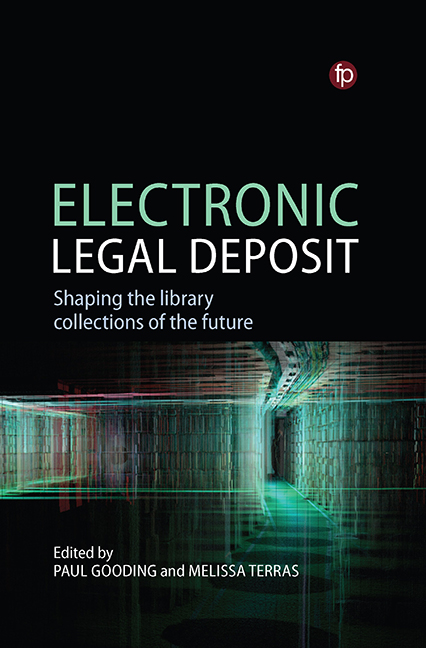1 results in Facet Studies in Information Science

Electronic Legal Deposit
- Shaping the Library Collections of the Future
-
- Published by:
- Facet
- Published online:
- 07 November 2020
- Print publication:
- 31 March 2019

